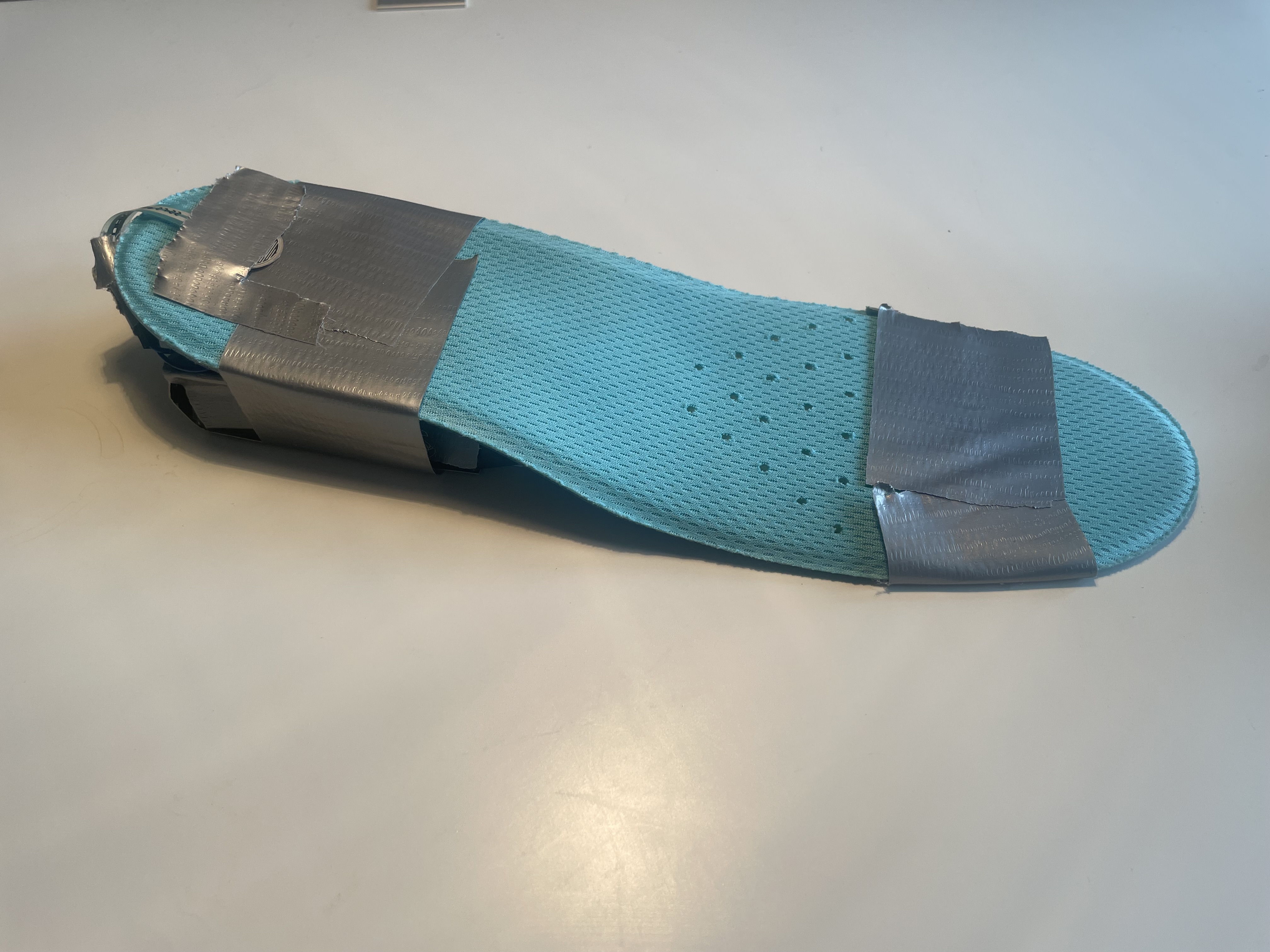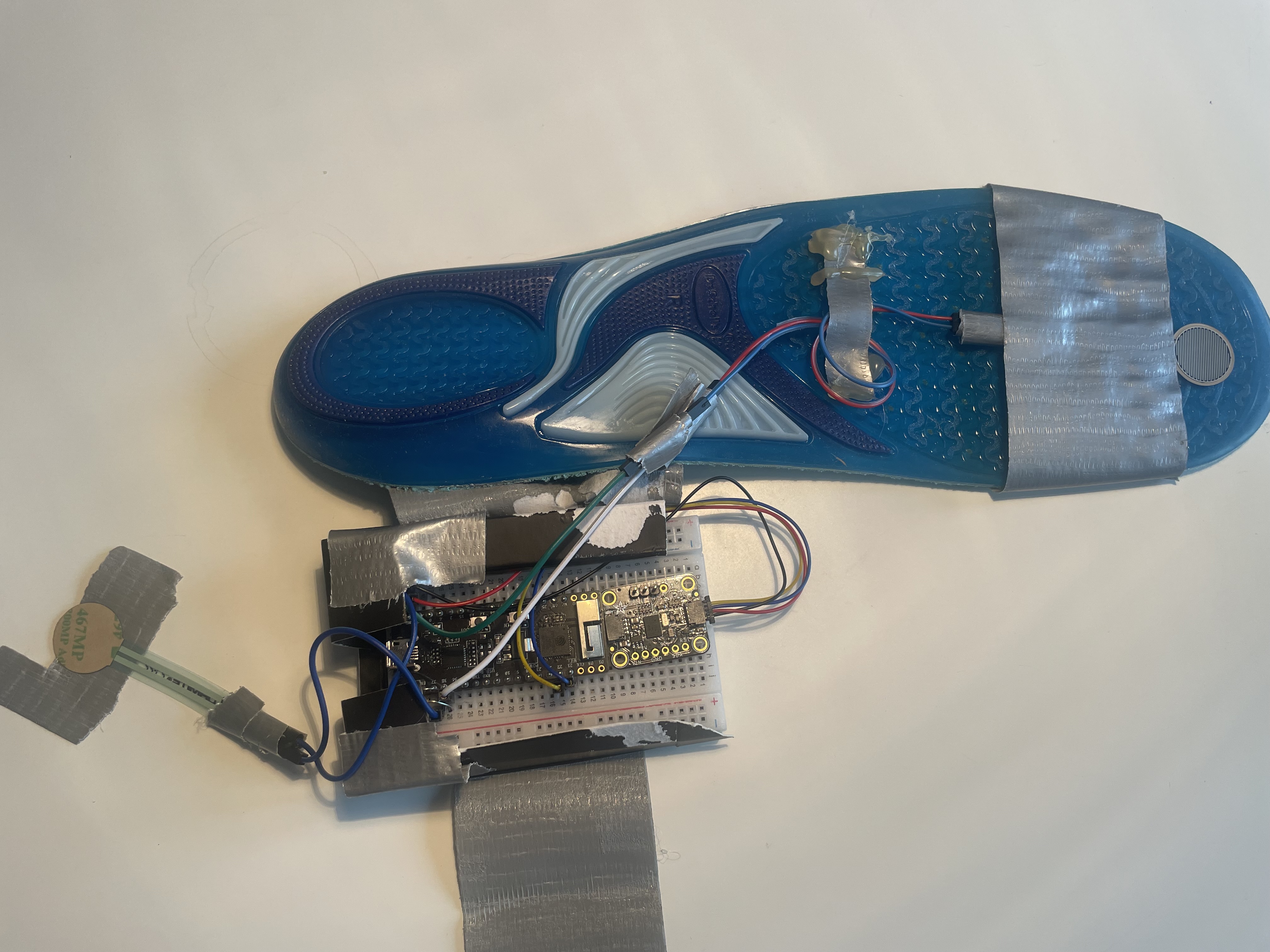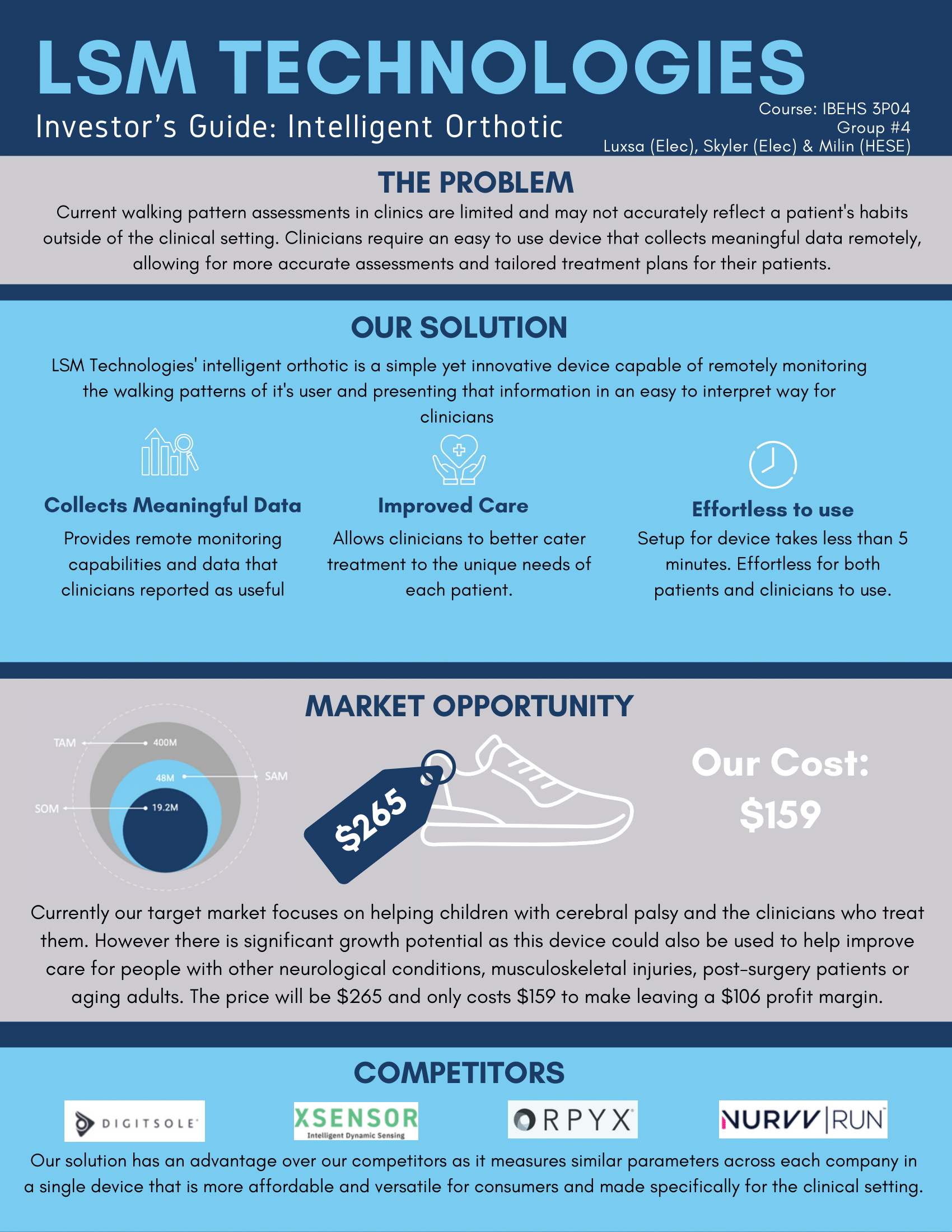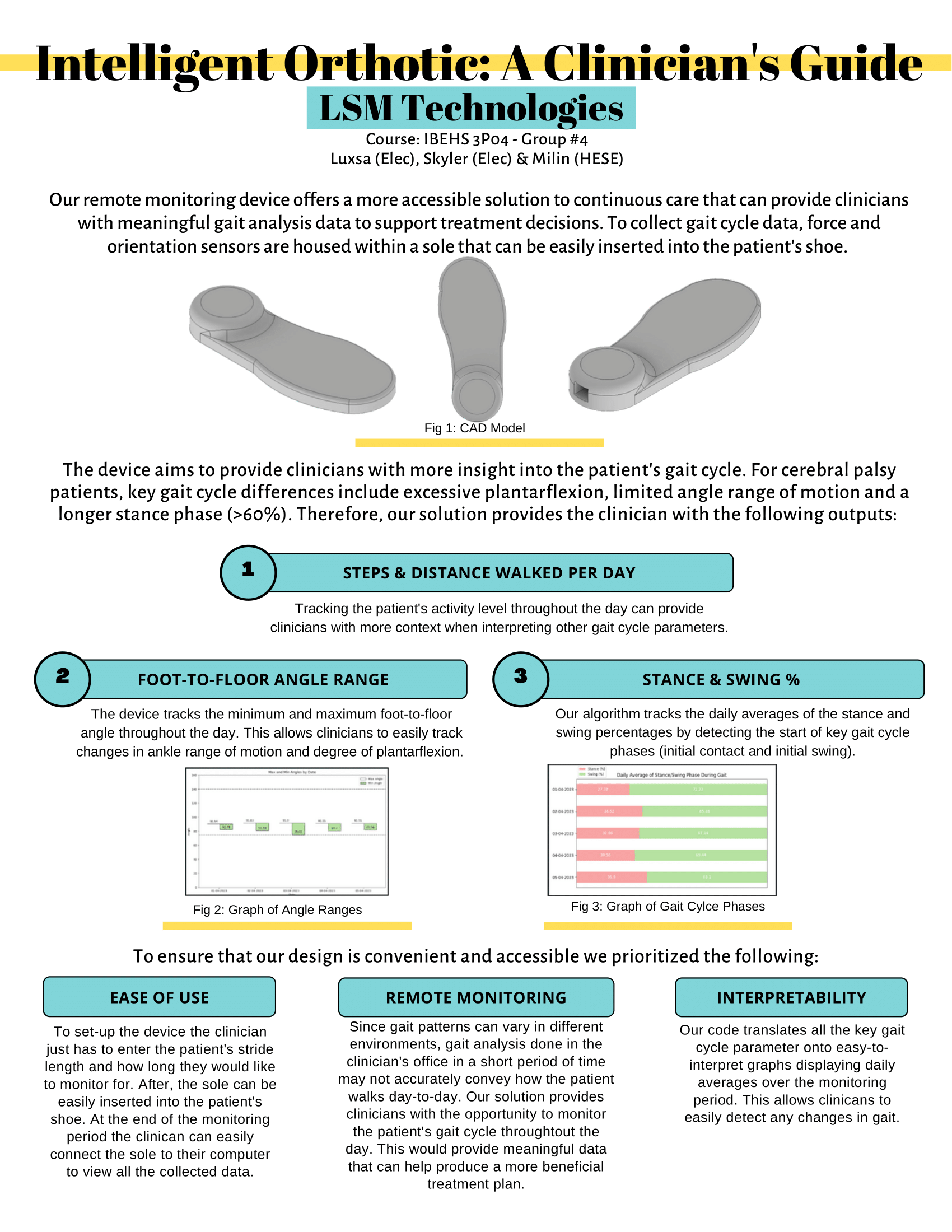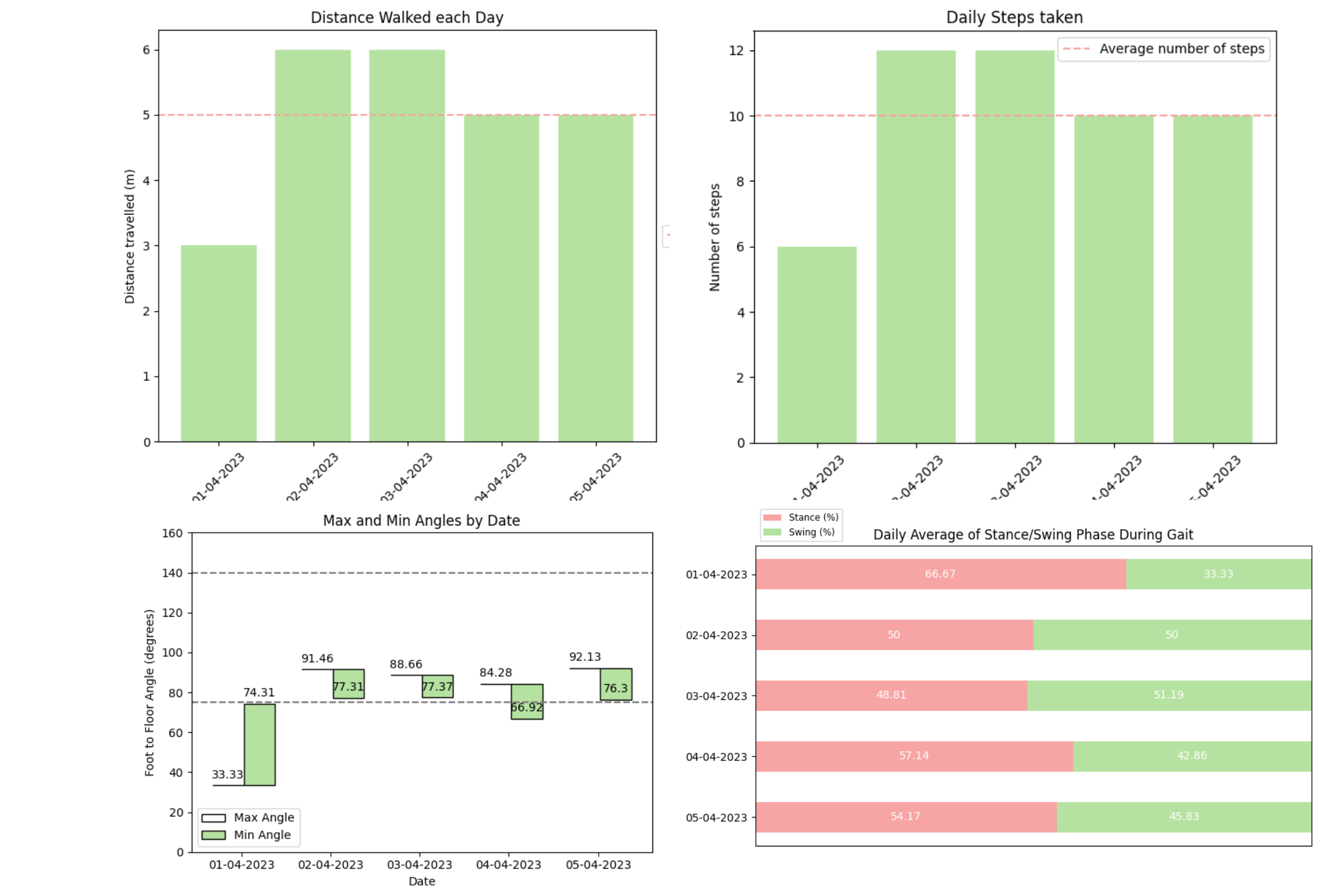Project information
- Category: Design Project
- Required Skills: System design, programming (C++. Python), use of microcontroller, CAD
- Project Start: January 2023
- Project End: April 2023
Project Details
Cerebral palsy, a central nervous system disorder, is considered to be the most common cause of
motor disability in children. In those with spastic cerebral palsy, equinus (aka toe-walking) is the most common
deformity. This deformity can be treated through surgery where ankle-foot orthoses are used as part of postoperative rehabilitation
in order to prevent the recurrence of equinus gait. As a result, the treatment plan for cerebral palsy patients requires
continuous care and routine follow-ups with a clinician.
To improve quality of care for these patients, myself and two other students designed an orthotic remote gait lab that is put into the
patients shoe and is capable of remote gait monitoring and measuring and storing key clinical outcomes related to the patients gait. This gives clincians important insight
into their patients daily walking habits while also being cheap and effortless to use. The device features different sensors (BNO055
orientation sensor, FSR) and a microcontroller (ESP32) which collects, processes, and visualizes the number of steps, distance walked,
range of motion of ankle joint, and percentage of gait cycle spent in stance phase vs swing phase each day.
